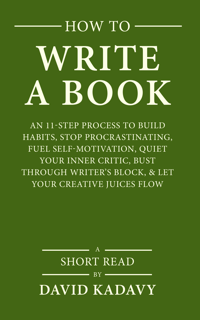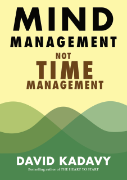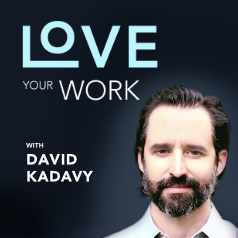Subscribe to blog updates via email »
How to Predict the Future: Dylan Evans – Love Your Work, Episode 221
 Dylan Evans (@evansd66) had an intense experience with uncertainty. He was fifty percent certain that civilization would collapse within several years.
Dylan Evans (@evansd66) had an intense experience with uncertainty. He was fifty percent certain that civilization would collapse within several years.
So, he sold his house, gave up his job, and set out to learn how to survive the apocalypse. He tells the story in his book, The Utopia Experiment. He and a team of volunteers constructed yurts on the Scottish highlands, and started growing their own food and making their own clothes, trying to see if they could disconnect themselves from civilization.

WANT TO WRITE A BOOK?
Download your FREE copy of How to Write a Book »
(for a limited time)
Civilization didn’t collapse within the period of time that Dylan had predicted, and as he looked at what remained of his life, he started to ask himself, “where did I go wrong?”
This led Dylan to study what he calls Risk Intelligence – he now has written a book by that title. Risk Intelligence is the ability to navigate uncertainty. That is what we’ll be talking about today.
Navigating uncertainty matters in creative work
Imagine you serve coffee at Starbucks. Starbucks knows exactly how much to pay you each hour. They know exactly how much coffee you can make, they know exactly what that coffee costs them, they know exactly what profit margin they want.
Creative work is not serving coffee. You never know how long it takes for an idea to brew. When a breakthrough does come to you, the results can be unpredictable. Sometimes a project takes off, and sometimes it doesn’t. Some of that is due to skill, a lot of that is due to luck.
If you’re going to love your work, you need to know how to deal with uncertainty.
If you write this book, what are the chances it will sell? When you launch this product, how much money will it make? Questions like these help you choose: Amongst the countless actions you can take, what actions are worth it?
And when you do finally make a choice, and you look back at the results, do you really have a clear picture of whether you made the right decision? What can you learn from the decision you made which can make your future decisions wiser, more clear – better?
When you’re trying to love your work, you’re dealing with uncertainty. Part of dealing with uncertainty is knowing how to be at least a little more certain in an uncertain world. It’s as close as you can get to predicting the future.
In this conversation, you’ll learn:
- How can you make falsifiable forecasts on your creative projects? When you make falsifiable forecasts, you can start to score your ability to predict the future. If you improve your forecasting skills, you’ll make better predictions, and better decisions.
- Dylan says, “The difference between a good decision maker and a poor decision maker…is that a good decision maker will rate the quality of his or her decision by the actual thought process going into the decision, not ‘Did it turn out to be the correct decision?’” Well, how do you rate the quality of your decisions?
- You may have fantasized yourself about unplugging from civilization. I was curious: What’s the one thing about civilization that Dylan realized he was taking for granted?
Thanks for sharing my work!
On Twitter, thank you to @CapeHornCHI and @analydiamonaco.
On Instagram, thank you to @sonny_enslen.
My Weekly Newsletter: Love Mondays
Start off each week with a dose of inspiration to help you make it as a creative. Sign up at: kadavy.net/mondays
Join the Patreon for (new) bonus content!
I've been adding lots of new content to Patreon. Join the Patreon »
Sponsors
LinkedIn Jobs: Find the right person meant for your business TODAY with LinkedIn Jobs. Get $50 off your first job post at https://linkedin.com/loveyourwork
Subscribe to Love Your Work
Listen to the Dylan Evans Interview
- Listen in iTunes >>
- Download as an MP3 by right-clicking here and choosing “save as.”
- RSS feed for Love Your Work
Theme music: Dorena “At Sea”, from the album About Everything And More. By Arrangement with Deep Elm Records. Listen on Spotify »


